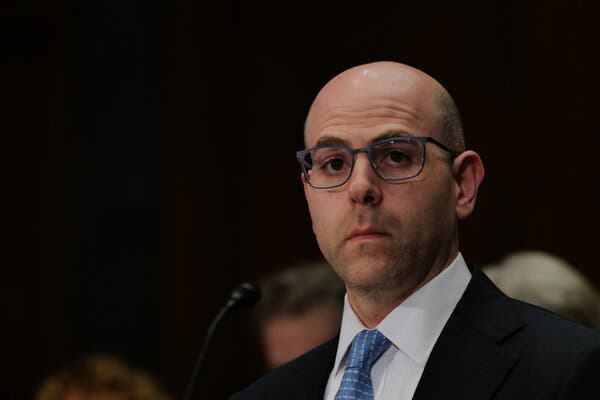UPDATE: The Senate has just confirmed Stephen Miran as a Federal Reserve governor in a highly contentious 48-47 vote, marking a pivotal moment in the ongoing political maneuvering surrounding the central bank. This decision comes amidst fierce objections from Democrats who express concerns about potential political interference in monetary policy.
With the vote occurring on Monday, Republicans swiftly moved to confirm Miran, a key economic adviser to President Trump, just days after altering the chamber’s rules to expedite the nomination process. Miran’s confirmation is particularly urgent as he will join the Federal Reserve ahead of its crucial two-day meeting starting Tuesday, where policymakers are expected to discuss a potential interest rate cut after an extended pause.
Miran, who has served as the chairman of the White House Council of Economic Advisers, is known for his controversial stances, including his support for significant tariffs and a critical view of the Fed. His close ties to the White House have raised alarms among some lawmakers, who fear that his presence at the Fed could compromise its independence.
During his confirmation hearing, Miran attempted to reassure senators about his commitment to impartiality, stating he would “dutifully carry out my role pursuant to the mandates assigned by Congress.” However, critics question whether he can make independent decisions that may conflict with the political interests of the Trump administration.
Notably, Senator Elizabeth Warren criticized the swift confirmation process, calling it an “all-out campaign” by Trump to reshape the Fed to his liking. She expressed deep concern over Miran’s background and the implications of his dual roles. Senator Lisa Murkowski, a Republican, also voiced her reservations, emphasizing the need for the Fed to maintain its independence.
Miran’s appointment fills a vacancy created by the sudden departure of Adriana D. Kugler last month. His term is set to run through January, but he could remain at the Fed even longer, as Trump is expected to nominate additional members to the Board.
As a Fed governor, Miran will have the power to vote on interest rates, with significant implications for the economy. Observers worry that his dual commitments could lead to conflicts of interest, particularly concerning the ongoing discussions about inflation, which some economists argue has been exacerbated by the administration’s policies.
The urgency of this confirmation is underscored by Miran’s potential influence on the central bank’s future decisions, especially as the Fed grapples with inflation and economic stability. As the situation develops, all eyes will be on Miran’s actions and the forthcoming Fed meeting, which could set the stage for major economic shifts in the coming months.
Stay tuned for updates as this story unfolds.
